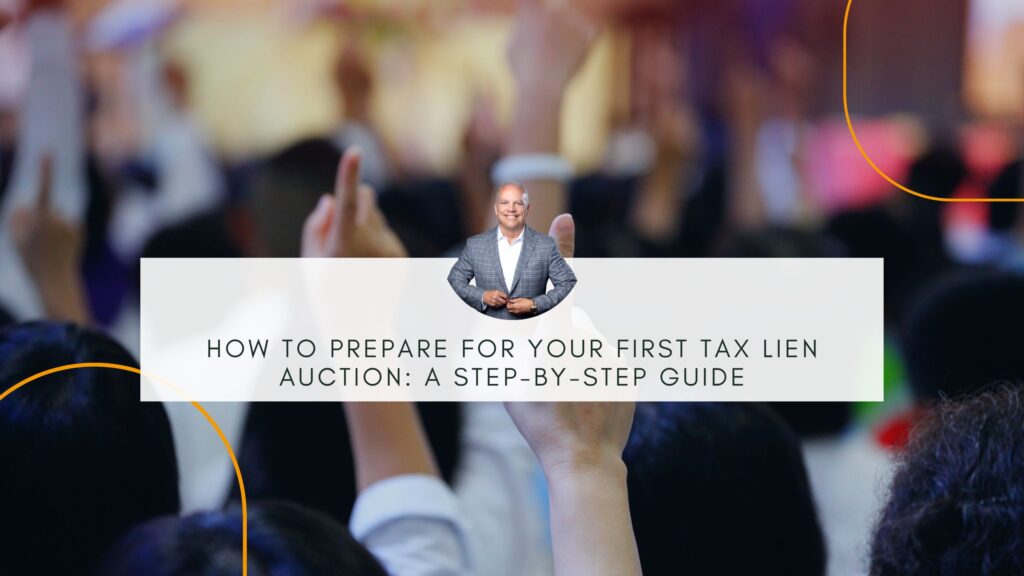
Let’s conquer your first tax lien auction! This step-by-step guide equips you with everything a beginner needs to know. We’ll explore the tax lien auction process, develop winning bidding strategies, and guide you through post-auction follow-up. Unlock the potential of tax lien investing and learn how to profit from delinquent property taxes.
Tax lien auctions can be a potentially lucrative way to invest in real estate. For those unfamiliar, tax lien certificates represent unpaid property taxes that local governments sell to investors. These investors essentially become lenders to the delinquent taxpayer, earning interest on the outstanding debt. In some cases, if the taxes remain unpaid, the investor may even acquire the property itself through foreclosure.
Step 1: Understanding Your Local Tax Lien Auction Process
Every county or municipality conducts tax lien auctions differently. Your first step is to research how auctions are held in your area. This information is typically available on the website of the relevant government office (treasurer, tax assessor, etc.). Look for details such as:
- Auction Format: Is it conducted online or in person?
- Registration Deadlines: When do you need to register to participate?
- Fees and Deposits: Are there any registration fees or deposits required?
- Minimum Bids: Are there minimum bid requirements for specific properties?
- Payment Methods: What forms of payment are accepted (certified checks, cash, etc.)?
By familiarizing yourself with these details upfront, you’ll avoid any last-minute surprises come auction day.
Step 2: Researching Potential Properties for Your Tax Lien Auction
Most government websites will provide a catalog or list of properties available at the auction. This list will typically include details like property type, location, minimum bid amount, and the outstanding tax balance. However, to truly assess the potential return on your investment, delve deeper with some additional research:
- Estimated Market Value: Use online resources like Zillow (https://www.zillow.com/sellerlanding/claimyourhome/) to get a rough idea of the property’s current market value. This will help you determine the potential profit if you end up acquiring the property through foreclosure.
- Public Records: Dig into public records to uncover additional details about each property:
- Ownership information: This can help locate the current owner and potentially contact them to discuss tax payment options.
- Tax History: Review the property’s past tax delinquency record and any existing prior liens. This can give you a sense of the likelihood of the owner redeeming the property before foreclosure becomes necessary.
- Property Photos (Optional): Some government websites or online real estate platforms may offer photos of the property. This can be particularly valuable for assessing the property’s condition.
Step 3: Setting Your Budget and Bidding Strategy for the Tax Lien Auction
Budget:
Before you start bidding, it’s crucial to establish a clear budget for each property. This should factor in not just the minimum bid amount, but also potential additional costs like:
- Auction fees
- Interest on the tax lien
- Foreclosure expenses (if necessary)
Bidding Strategy:
Research typical interest rates for tax liens in your area. This will help you determine a maximum bid amount that still allows for a profitable return on your investment. Develop a bidding strategy that considers your budget limitations and research findings.
Step 4: Attending the Auction (Live or Online)
Live Auction:
Arrive early to register and familiarize yourself with the auction process. Pay attention to any announcements or clarifications from the auctioneer. Be prepared to act quickly and decisively when bidding on properties that interest you.
Online Auction:
Ensure you have a stable internet connection and a clear understanding of the online bidding interface before the auction begins. Some platforms may have automatic bidding options, so be sure you understand how these work before utilizing them.
Step 5: Following Up After the Auction
Winning Bids:
- If you win a bid, congratulations! Understand the next steps involved, such as payment procedures and how to receive your official tax lien certificates.
- Familiarize yourself with the foreclosure process in your area, in case it becomes necessary to collect the outstanding debt.
Losing Bids:
- Don’t be discouraged if you don’t win every bid. Analyze your strategy and research for future auctions. Perhaps you need to adjust your budget or bidding approach.
Conclusion
By following these steps and conducting thorough research, you’ll be well on your way to a successful experience at your first tax lien auction. Remember, preparation is key!
Ready to Learn More?
Tax lien auctions can be a powerful tool for building wealth in real estate. If you’d like to delve deeper into this strategy, consider attending a free, in-person by visiting saenhiggins.org or stay up to date on all things tax lien real estate strategy by visiting taxlienmethod.com/blog
If You Aren’t Ready for Auction Day – How To Prepare
